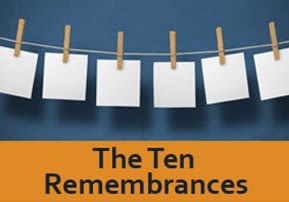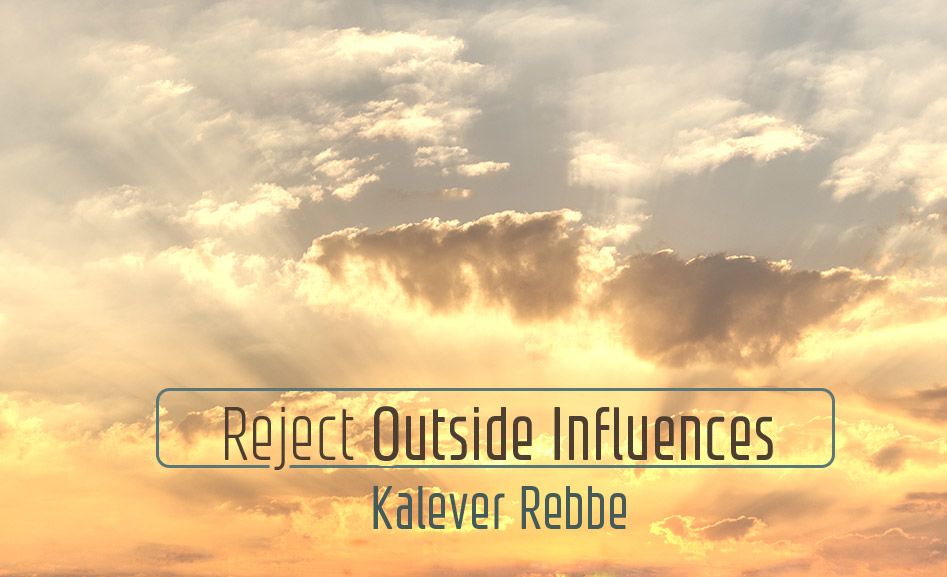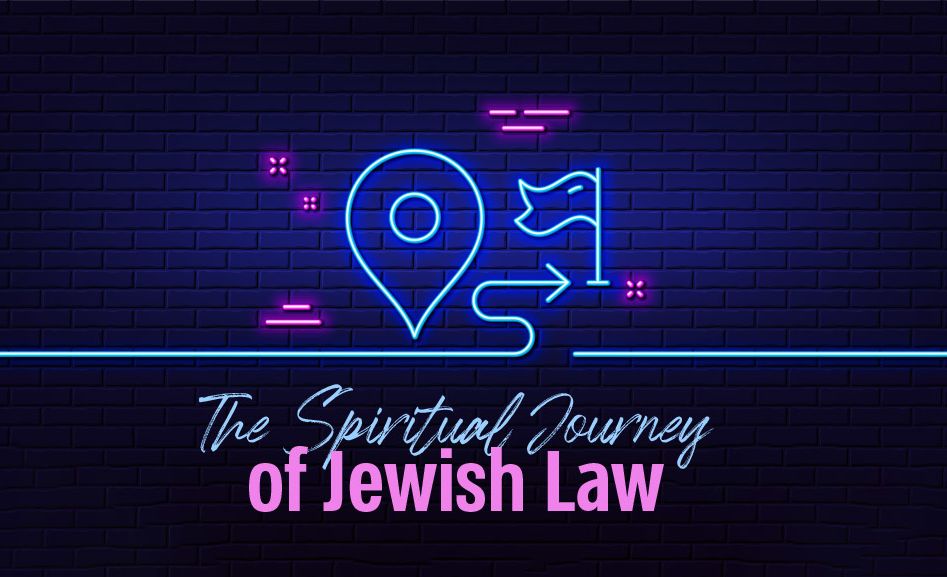
The Ten Remembrances
Ingratitude is a manifestation of the dark-side spiritual force of Amalek. The main point to remember Amalek is to remember to thank Hashem for everything…

The Torah commands every Jew to remember ten archetypal Biblical events every day. Not only are we commanded to remember them, but we must remember the loving-kindness that G-d showered upon us in each of these events and thank Him for it.
The following short commentary on the Ten Remembrances should help us to focus on what miracles to thank G-d for when we recite the verses:
1. The Exodus from Egypt – To remember Hashem’s loving-kindness and all the miracles and wonders that He performed when He redeemed the Jewish people from slavery, made us a nation, gave us the Torah, and more. The remembrance of the exodus from Egypt is the fundamental remembrance upon which all others and our entire existence as a nation are founded. As such, every person must thank G-d for the exodus from Egypt with all his heart, and then imagine himself being redeemed from Egypt and say to G-d: “Thank You very much, G-d, for taking us out of Egypt. Thank You for splitting the Red Sea for us. Thank You for accompanying us through the desert with the seven clouds of glory. Thank You!”
2. Shabbat – We must thank Hashem every day for Shabbat. G-d told Moses, “I have a fine gift stored in My treasure house, and Shabbat is its name, go and tell them (Israel).” We must thank G-d every day for Shabbat and the Jewish holidays. How can we not say thank you for such wonderful gifts? True, we can never thank G-d enough for these gifts, but at least we should be grateful every day.
3. Manna – We must thank G-d for the manna, the Heaven-sent bread that He fed us in the desert, for the quail and for the well of water that accompanied Israel throughout their desert trek. Not only did the manna fall from the heavens to feed Israel on a daily basis, but it also brought abundance down to earth with it. When we thank G-d for the manna, we should also thank Him for the sustenance that G-d provides for us every hour of every day. We must also strengthen ourselves with faith and confidence that it is G-d Who provides our sustenance. We must know that it is G-d’s job to provide and man’s job to serve Him and if necessary, G-d will once again shower us with manna from heaven.
4. Amalek – Amalek first attacked Israel when they asked a question that stemmed from ingratitude: “Is G-d in our midst or not?” A person who is not an ingrate sees Hashem’s loving-kindness every moment and would never ask such a question. When reciting this remembrance we should focus on belief that G-d protects and watches over us constantly. He is always with us, showering us with His goodness. We should never ask if G-d is in our midst or not. Instead, we should always see His goodness and thank Him for His boundless kindness.
Ingratitude is a manifestation of the dark-side spiritual force of Amalek. The main point of the commandment to remember Amalek is to remember not to be ungrateful and to thank G-d for everything. To erase the memory of Amalek means to erase our ungratefulness and complaints. Every time that we remember Amalek we should focus on not being ungrateful. By blotting out the ingratitude in our character, we blot out Amalek.
5. Receiving the Torah on Mount Sinai – We must thank Hashem for the Torah every day! We can never thank G-d enough for the Torah, but at least we should thank Him daily and say: “Thank You, G-d for giving us the holy Torah at Mount Sinai and thank You for the commandments that we receive anew every day.”
6. Angering G-d in the desert, particularly with the Golden Calf – One way to understand this remembrance is that we must thank Hashem for His patience, especially for the fact that He did not pour out His wrath upon us, but rather divided the punishment for the Golden Calf into smaller installments. We must also thank G-d for His patience with us now and say: “Thank You, G-d, for Your patience with all my sins and for the fact that You still love me.”
The main point of this remembrance is to recall how much we angered G-d with our unnecessary crying and complaints from the very beginning of the redemption from Egypt, as the Torah testifies: “Remember, do not forget how you angered Hashem your G-d in the desert from the day that you left the land of Egypt until you came to this place, you have been rebellious against G-d” (Deuteronomy, 9:7).
7. Hashem’s foiling of Balak and Bilaam’s plot against our ancestors, so that we may know His righteousness – Clearly, we must remember G-d’s loving-kindness and goodness; how He protects us from our enemies’ plots minute by minute, even without our awareness. Balak and Bilaam circled the Camp of Israel, looking for a way to carry out their evil plot, while the Nation of Israel did not even know the great danger that it was facing.
With this remembrance in mind, we must thank Hashem, Who alters nature in order to save His nation, as in the desert. Thanks to Divine intervention, neither Balak’s sorcery nor Bilaam’s curses had any effect on Israel.
Surely we must thank the Creator for everything that He does for us every moment, even when we have no idea what our enemies are planning against us. In every generation a new enemy rises to destroy us, and the Holy One, Blessed be He saves us from their grasp.
8. Miriam the Prophetess in the desert – We must remember that Hashem gave us our mouths and the power of speech for the purpose of thanking Him, as it is written: “I have formed this nation for Myself, so that they may tell My praise” (Isaiah, 43:21). Immediately before reciting the Amidah prayer, we say: “G-d, open my lips so that my mouth may tell of your praises.” We certainly do not want Hashem to open our lips and mouths so that we can complain, cry and speak ill of others.
9. G-d gives us strength to succeed – We must thank Hashem for all of our successes in every facet of our lives. We must not be ungrateful or arrogant, thinking that our achievements are due to our personal prowess.
10. Jerusalem – We must remember why Jerusalem was destroyed – the needless crying that resulted in the destruction of the two Holy Temples – for which we still cry to this very day.
In summary, all the remembrances teach us to develop our gratitude. If we remember all the kindness that Hashem performed for our ancestors, we will certainly remember the kindness that He has performed for each one of us individually. We can also add our own personal remembrances and thank Him daily for significant blessings in our lives. For example, a husband can thank G-d for his wife, the wife for her husband, both of them for their parents, their children, and their rabbi, and so forth.
For fifteen years, the Seer from Lublin spent an hour a day thanking G-d for bringing the soul of his mentor Rabbi Elimelech of Liszansk down to this world. Fifteen years! We must thank G-d all day long for the tzaddikim who bring us close to Him. When I heard this story about the Seer from Lublin, may his blessed memory intercede on our behalf, it became even clearer to me how much we must thank Hashem for the tzaddikim who illuminate our path.









Tell us what you think!
Thank you for your comment!
It will be published after approval by the Editor.